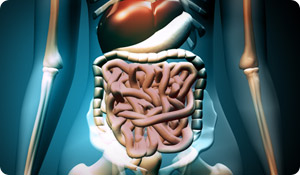
Blood in the stools can be a frightening to see. While some causes of bloody stools are harmless such as hemorrhoids, other reasons for bloody stools can mean a more serious illness like colon cancer. If you notice blood or color changes in your stool, see your doctor immediately to rule out a serious problem.
A bloody stool may come from anywhere along the digestive tract. Black, tarry-colored stools are usually an indication that the blood is coming from the upper part of the gastrointestinal tract (GI), including the esophagus, stomach, and the small intestine. Some common causes of upper GI bleeding include stomach ulcers or inflammation caused by ibuprofen, naproxen, or aspirin. Consuming black licorice, lead, iron pills, blueberries, and over-the-counter bismuth subsalicylate medications like Pepto-Bismol can cause the stools to turn black.
Maroon-colored or bright red stools usually means the bleeding is coming from the lower part of the GI tract (large bowel, rectum, or anus). Hemorrhoids and diverticulosis (an abnormal pouch in the colon) are two common causes of lower GI tract bleeding. Eating beets and tomatoes can sometimes make the stools look reddish in color.
Here are five other common causes of blood in the stool:
1. Colon polyps or colon cancer: According to the American Cancer Society, colorectal cancer is one of the leading causes of cancer-related deaths in the U.S. However, early detection often leads to a complete cure of the disease. Talk to your doctor about your risk factors for developing colon cancer and when you should start health screenings.
2. Inflammatory bowel disease such as Crohn's disease and ulcerative colitis.
3. Intestinal infection: Bacteria such as E. coli and salmonella can cause bloody diarrhea.
4. Lack of proper blood flow to the intestines, also called bowel ischemia.
5. Anal fissures are caused by a small tear in the lining of the lower rectum.
To determine an exact diagnosis, your doctor will give you a physical exam, take your medical history, ask about your diet and the medications you take, test your stools with a chemical to rule out the presence of blood, and may perform a colonoscopy, barium study, or other diagnostic tests.
Remember, there are ways you can prevent bloody stools and ways you can reduce chances of having any other digestive health conditions:
- Eat a healthy diet high in fruits and vegetables and low in saturated fat to reduce your risk for constipation, hemorrhoids, diverticulosis, and colon cancer.
- Drink in moderation to reduce the amount of irritation in the lining of the esophagus and stomach.
- Quit smoking to reduce your risk for peptic ulcers and cancers of the GI tract.
Sources:
medicinenet.com/rectal_bleeding/symptoms.htm; umm.edu/ency/article/003130.htm





